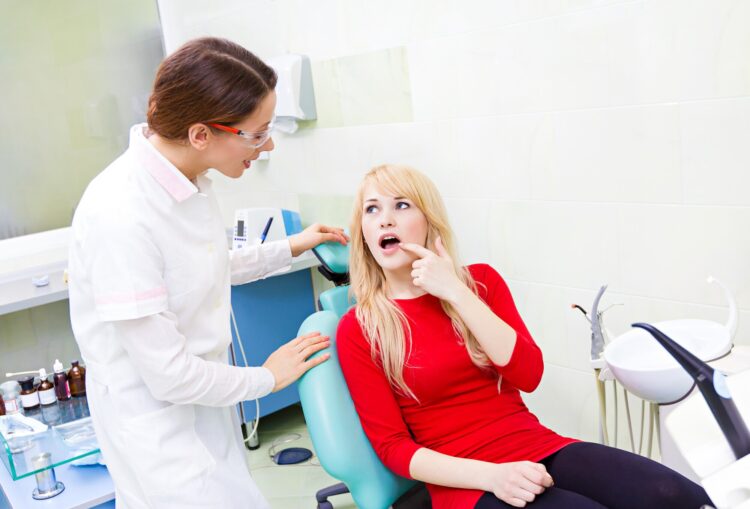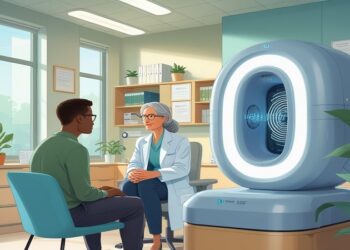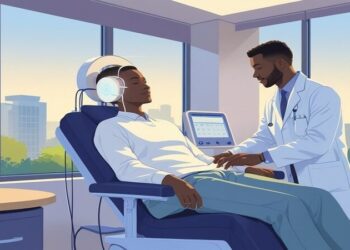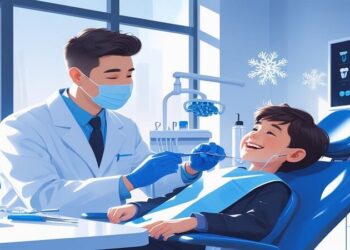Is there anything worse than having a toothache? Each year, millions of people experience the discomfort associated with tooth pain, which can be a sign of tooth decay, infection, or damaged teeth. The healthcare professional will then want to remove the tooth for your own safety, which can be quite painful.
The good part is that by the end of the day, you will no longer have that ache. The bad part is that you need to avoid certain foods and activities for two to three weeks to prevent irritation, infection, and discomfort.
Don’t worry; we got you covered. Keep on reading to learn the surprising things to avoid after tooth extraction.
Don’t Drink With a Straw
One surprising thing that many people may not realize they should avoid after a tooth extraction is drinking with a straw. While it may seem like a harmless and easier way to consume fluids, using a straw after tooth extraction can actually be harmful to the healing process. Sucking through a straw creates negative pressure in the mouth, which can dislodge the blood clot that forms to help with healing.
This can lead to a painful condition called dry socket, which can delay the healing of the extraction site. So, as tempting as it may be, it is best to avoid drinking with a straw to ensure a smooth and successful recovery after a tooth extraction.
Don’t Drink Alcohol
After undergoing a tooth extraction, it is important to follow the proper aftercare instructions to ensure a smooth and speedy recovery. While some may think that a glass of wine or a shot of whiskey may help ease the pain and discomfort, it is actually advised to avoid alcohol altogether. Drinking alcohol can interfere with the healing process.
This can cause excessive bleeding and increase the risk of infection. It can also interfere with the pain medication and antibiotics prescribed by the dentist. Even a small amount of alcohol can have negative effects on the healing process, so it’s best to avoid it until given the green light by your dentist.
Don’t Spit
Tooth extraction is a common dental service that involves the removal of a damaged or decayed tooth. While it may seem like a simple and straightforward process, there are certain activities that should be avoided after the extraction to ensure proper healing. One surprising thing to avoid is spitting.
Many people assume that spitting is a harmless action, but it can actually disrupt the blood clot that forms in the extraction site, leading to a condition called dry socket. This can be painful and delay the healing process. It is important to follow your dentist’s instructions and avoid spitting to ensure a smooth and speedy recovery after tooth extraction.
No Hard and Chewy Foods
It is important to take proper care of the healing area to prevent any complications. One surprising thing that should be avoided during this time is hard and chewy foods. These types of foods can cause irritation and damage to the healing socket, increasing the risk of infection and prolonging the healing process.
It’s crucial to stick to a soft diet during this time, including foods like soups, mashed potatoes, and smoothies. Surprisingly, some soft foods like nuts and dried fruits can also be harmful due to their small, hard particles. By avoiding hard and chewy foods, you can ensure a smooth and speedy recovery after your tooth extraction.
Avoid Brushing & Flossing
Avoid brushing and flossing in the affected area to prevent any potential complications or discomfort. While we may be accustomed to rigorous dental treatment, it is crucial to give the extraction site time to heal. Brushing and flossing can cause irritation and disturb the blood clot that has formed to protect the wound.
This can lead to bleeding, infection, and delayed healing. It may come as a surprise, but avoiding brushing and flossing after a tooth extraction is necessary for a smooth and successful recovery. So, it is best to be gentle with your mouth and stick to a soft diet until your dentist gives you the go-ahead to resume your regular oral hygiene routine.
Avoid Sucking
It is natural to want to ease the discomfort by sucking on a straw or your fingers. However, this seemingly innocent action can actually do more harm than good. The suction created by sucking can dislodge the blood clot that forms at the extraction site, leading to a painful condition.
Additionally, the pressure from sucking can also cause bleeding and delay the healing process. To avoid these potential complications, it is important to avoid sucking on anything for the first 24 hours after a tooth extraction. This may seem like a small sacrifice, but it can make a big difference in your recovery and overall oral health.
No Smoking
You should avoid smoking during this period. Smoking not only hinders the healing process but also increases the risk of complications, such as infection and dry sockets. The chemicals in cigarettes can slow down the blood flow to the affected area.
This can make it difficult for the body to send essential nutrients and oxygen to promote healing. The act of smoking can create suction in the mouth, dislodging the blood clot and causing a painful condition known as dry socket. Thus, it is important to avoid smoking after a tooth extraction to allow your mouth to heal and avoid any unnecessary discomfort.
Avoid Specific Medication
Take precautions and avoid certain activities and substances that can hinder the healing process. One surprising thing to avoid is specific medication. While painkillers may seem like a necessity after surgery, certain medications such as aspirin and ibuprofen can actually increase bleeding. This medicine delays the clotting process.
It is important to consult with your dentist or oral surgeon before taking any medication. Because the dentist can recommend an alternative that is safer for the healing process. By being mindful of what we put into our bodies, we can ensure proper healing and avoid any complications after a tooth extraction.
Avoid Acidic Food
The last thing you want to do is cause any further discomfort or complications. That’s why it’s important to be aware of surprising things you should avoid, such as acidic food, in order to promote healing and prevent any unnecessary pain. Surprisingly, one of the foods to avoid after tooth extraction is acidic food.
This includes citrus fruits and tomatoes, which can irritate the sensitive area where the tooth was extracted and slow down the healing process. Acidic foods can irritate the wound and delay the healing process. They can also cause discomfort and pain, especially if the wound is still fresh.
It is best to stick to soft, non-acidic foods during this time to ensure a smooth and quick recovery. Don’t let something as harmless as acidic food derail your recovery after a tooth extraction.
Avoid Stress
Too much stress can have a negative impact on your body’s ability to heal, including the healing of the extraction site. Stress can also lead to teeth grinding or clenching, which can cause discomfort and delay the healing process. It can also cause tension in the jaw muscles, making it difficult for the extraction site to heal properly.
It is important to take measures to reduce stress levels and allow your body to focus on healing after a tooth extraction. This could include practicing relaxation techniques, seeking support from loved ones, or taking time for self-care activities. By avoiding stress, you can help promote a quicker and smoother recovery after a tooth extraction.
Vigorous Rinsing
To properly care for the area where the tooth was removed to promote healing and prevent complications. One surprising thing that many people do not realize they should avoid after a tooth extraction is vigorous rinsing. This can include using a strong mouthwash or swishing liquid around forcefully.
While it may seem like a good idea to clean the area, vigorous rinsing can actually dislodge the blood clot that forms to protect the extraction site. This can lead to a dry socket, a painful condition that delays the healing process. Instead, gently swish with salt water and follow your dentist’s instructions for proper aftercare to ensure a speedy and successful recovery.
Strenuous Physical Activity
It is crucial to allow your body time to heal and avoid any strenuous physical activity. This means refraining from any rigorous exercises or sports that need intense physical exertion. Activities like weightlifting, running, and even participating in a simple game of basketball.
These activities can put excessive pressure on the healing area and delay the recovery process. It is also important to avoid swimming or engaging in water sports, as the chlorine and bacteria in the water can increase the risk of infection. It may be tempting to resume your regular workout routine, but it is best to listen to your dentist’s advice and avoid any strenuous physical activity until you are fully healed. Your body will thank you in the long run.
Ignoring Signs of Infection
Ignoring signs of infection after tooth extraction may seem like a small, insignificant issue, but it can actually have serious consequences. Often, patients think minor discomfort or pain is normal after a dental procedure, but it could be a red flag for infection. Ignoring swelling, bleeding, or bad breath can lead to further complications.
This includes a dry socket or the infection spreading to other areas of the body. It’s always better to err on the side of caution with an Emergency Dentist if you are experiencing any unusual symptoms after a tooth extraction.
Don’t ignore the signs of infection. It could save you from a much bigger and more painful problem in the long run.
Spicy Foods
While it may be tempting to indulge in some of our favorite spicy foods to lift our spirits, it is important to avoid them as they can worsen the pain and delay the healing process. Spicy foods contain capsaicin, a compound known to irritate and inflame the sensitive tissues in the mouth. This can cause discomfort and prolong the recovery time.
The spicy flavors may also interfere with the formation of blood clots, which are crucial for proper healing after the extraction. It is best to avoid spicy foods for the first few days after tooth extraction to ensure a smooth and speedy recovery.
Don’t Poke Into the Gap Created
It may be tempting to explore the newly created gap with your tongue or a finger. Yet, this is one of the surprising things you should avoid after a tooth extraction. Poking into the gap can disrupt the blood clot that forms to protect the extraction site and promote healing.
This can lead to a dry socket, a painful condition where the bone and nerves in the socket are exposed. Besides causing discomfort, poking into the gap can also introduce harmful bacteria, increasing the risk of infection.
So, resist the urge to poke or prod the extraction site and allow your body to heal. Follow the aftercare instructions provided by your dentist to help ensure a smooth and successful recovery.
Ignoring Oral Hygiene
Avoiding proper oral hygiene after a tooth extraction can lead to infection and delay the healing process. Bacteria and food particles can get trapped in the open wound, causing inflammation and pain. In severe cases, this neglect can even result in a dry socket.
This can lead to a painful condition where the blood clot in the socket dislodges, exposing the nerves and bones. So, even though it may be uncomfortable, it is crucial to continue practicing good oral hygiene, such as gentle brushing and rinsing, to avoid any unexpected complications.
Learning About Surprising Things to Avoid After Tooth Extraction
In conclusion, it is important to know the things to avoid after tooth extraction to ensure a smooth recovery. Avoiding things like working out and consuming spicy foods can greatly improve healing time and reduce the risk of complications. Follow these tips and make sure to consult with your dentist for any other concerns.
Your mouth will thank you! Stay healthy and heal well.
But in case you did find this information useful and know someone who did as well, please check out some of the other great articles on the rest of our site.
To know more about keep reading Pinay Flix.






